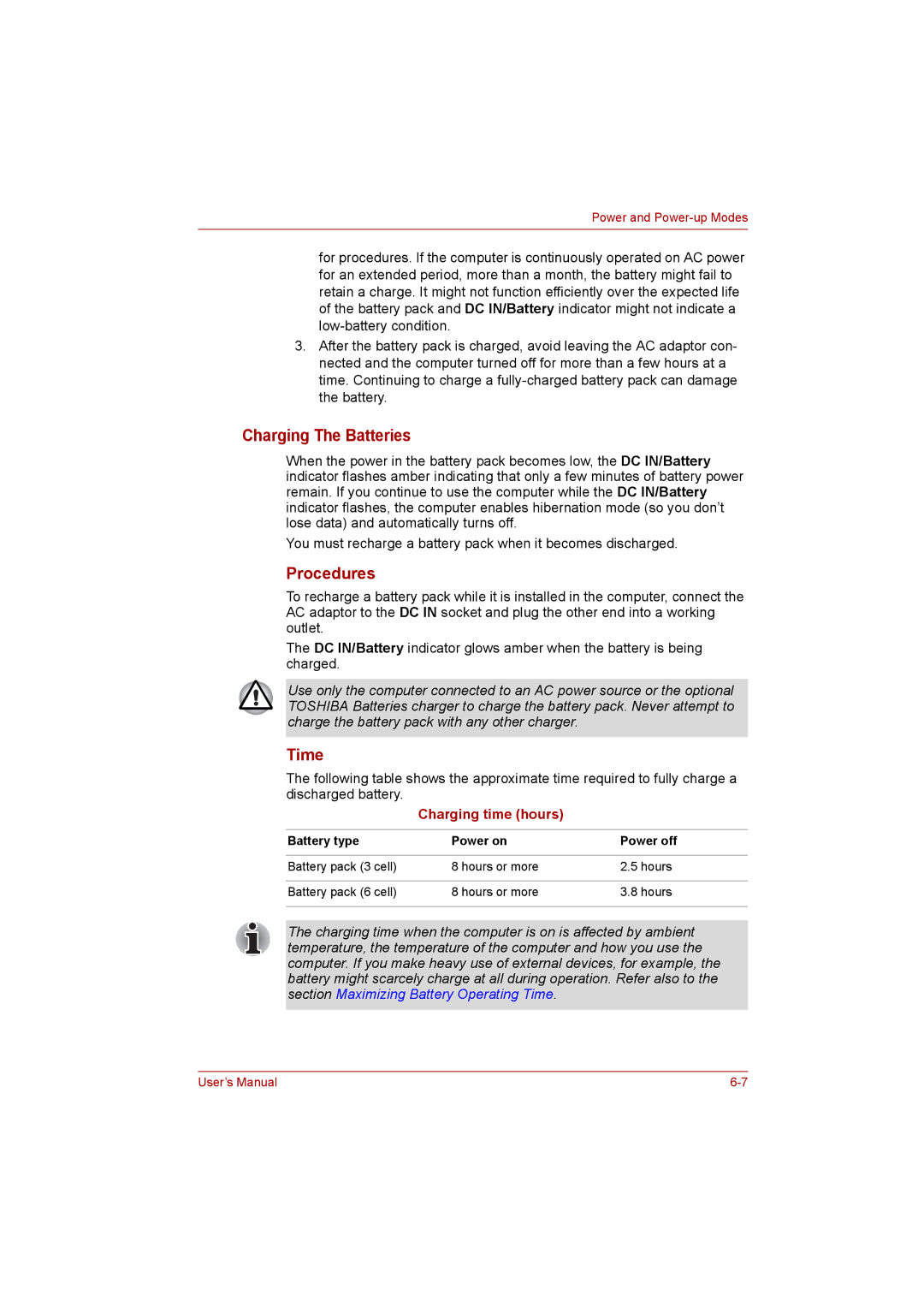
Power and Power-up Modes
for procedures. If the computer is continuously operated on AC power for an extended period, more than a month, the battery might fail to retain a charge. It might not function efficiently over the expected life of the battery pack and DC IN/Battery indicator might not indicate a
3.After the battery pack is charged, avoid leaving the AC adaptor con- nected and the computer turned off for more than a few hours at a time. Continuing to charge a
Charging The Batteries
When the power in the battery pack becomes low, the DC IN/Battery indicator flashes amber indicating that only a few minutes of battery power remain. If you continue to use the computer while the DC IN/Battery indicator flashes, the computer enables hibernation mode (so you don’t lose data) and automatically turns off.
You must recharge a battery pack when it becomes discharged.
Procedures
To recharge a battery pack while it is installed in the computer, connect the AC adaptor to the DC IN socket and plug the other end into a working outlet.
The DC IN/Battery indicator glows amber when the battery is being charged.
Use only the computer connected to an AC power source or the optional TOSHIBA Batteries charger to charge the battery pack. Never attempt to charge the battery pack with any other charger.
Time
The following table shows the approximate time required to fully charge a discharged battery.
Charging time (hours)
Battery type | Power on | Power off |
|
|
|
Battery pack (3 cell) | 8 hours or more | 2.5 hours |
|
|
|
Battery pack (6 cell) | 8 hours or more | 3.8 hours |
|
|
|
The charging time when the computer is on is affected by ambient temperature, the temperature of the computer and how you use the computer. If you make heavy use of external devices, for example, the battery might scarcely charge at all during operation. Refer also to the section Maximizing Battery Operating Time.
User’s Manual |
